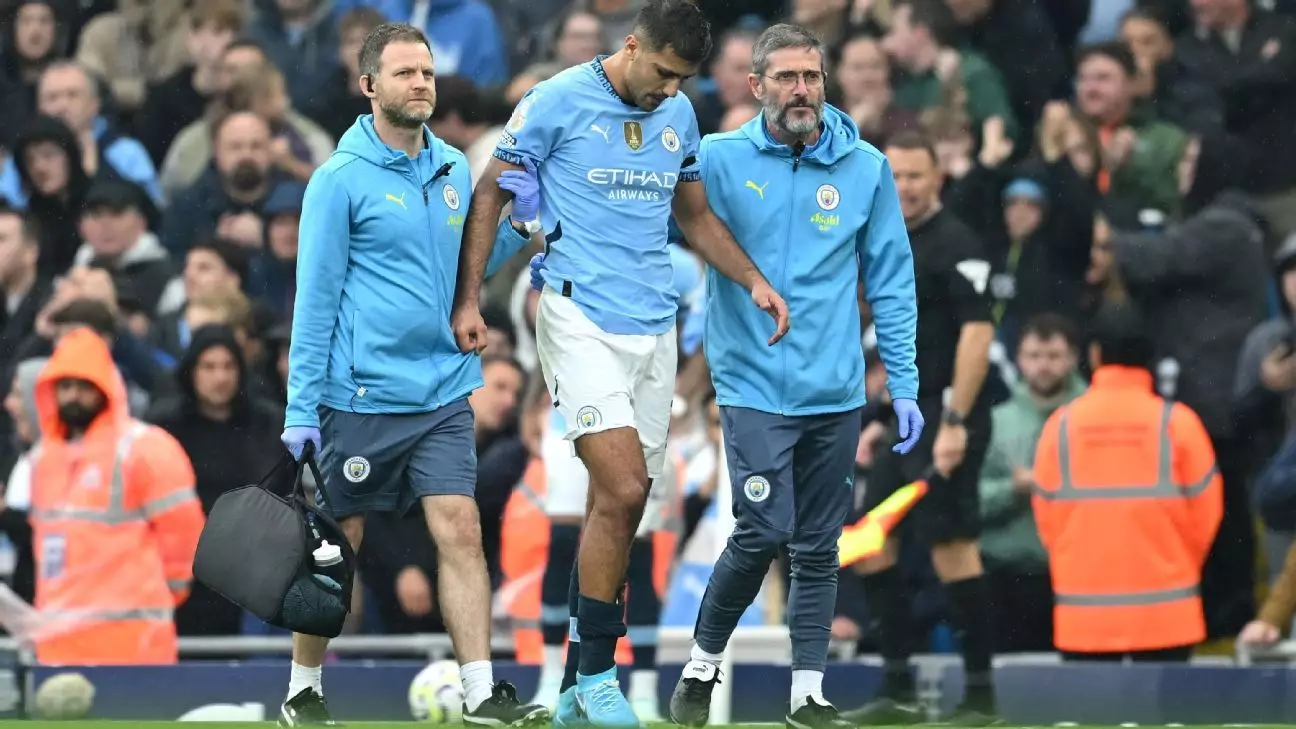In an era where the beautiful game of football commands an unprecedented global audience, the spotlight is increasingly focused on the toll excessive fixture congestion takes on players’ physical and mental welfare. Recent statements from LaLiga president Javier Tebas have amplified this concern, particularly regarding the potential for player strikes as a response to mounting pressures. With the expansion of UEFA’s club competitions and FIFA’s revamped Club World Cup, this season is primed to become the longest yet, leading to legitimate fears about player health and well-being.
As Manchester City midfielder Rodri recently asserted, players are prepared to take drastic measures if their voices remain unheard. The growing chorus of player concerns underscored by Rodri and supported by others indicates a critical juncture for the sport. Tebas’s acknowledgment of these concerns suggests that the issue extends beyond mere overwork; it delves into the fundamental rights of players to advocate for their welfare, akin to any worker’s rights in other industries.
Across the league spectrum, the anxiety about player fatigue is palpable. Managers such as Pep Guardiola and Mikel Arteta have publicly raised alarms about the “burnout” players are experiencing, while Carlo Ancelotti posits that athletes might even accept reduced wages to alleviate fixture overload. Ancelotti’s proposition highlights a deep-seated commitment among players to preserve the integrity of their sport and maintain a healthy competitive environment.
The collective recognition of the issues at stake has pushed Tebas to take a more proactive stance. His assertion that the football calendar must not be manipulated without considering player welfare directly challenges the governing bodies overseeing the sport. The insistence that FIFA and UEFA must engage with domestic leagues to streamline competitions reflects a growing frustration among stakeholders who are directly involved in the day-to-day running of clubs and their players.
The crux of the issue lies in communication—or the lack thereof—between powerful decision-makers in football. Tebas’s call for a collaborative approach to refining the match calendar is not just a plea for compromise; it is a demand for foresight. “Two plus two is four,” he states simply yet effectively, indicating that football’s leadership must come to terms with the limits of players and clubs. Unquestionably, this is an issue of balance, for a sustainable footballing ecosystem must ensure competitors are provided with adequate recovery time.
As governing bodies have expanded tournaments and introduced more fixtures, they risk alienating the very players who drive the sport’s popularity. Striking players would not only signal a breakdown in dialogue but the potential for irreversible damage to football’s reputation. Stakeholders must act promptly to find solutions that prioritize player welfare without compromising the lucrative revenues generated from competitions.
Adding another layer to the complexity of fixture congestion, the prospect of taking LaLiga games to the United States raises questions about the ethics of globalizing football. While Tebas speculates about a regular-season game in Miami, he emphasizes the need for internal agreement within Spain’s football federation before proceeding. This is a clear reminder that in this increasingly commercialized sport, local governance is paramount to maintaining the integrity of football culture.
The potential for matches beyond national borders serves as a tantalizing opportunity to grow the sport’s following in emergent markets, yet it also risks diluting the essence of traditional football rivalries. The balance between expanding fan bases and preserving cultural identity within football remains delicate, and all stakeholders must navigate these changes with care.
As the landscape of football continues to evolve, the dialogue surrounding fixture congestion necessitates immediate attention. There lies a collective responsibility resting on the shoulders of players, managers, club executives, and governing bodies alike. Only through concerted efforts to respect players’ rights and well-being can football thrive in a manner that aligns with the passion and dedication exhibited by those on the pitch. Addressing these challenges head-on will not only safeguard the well-being of players but help nurture the sport’s growth for generations to come. Balancing competitive integrity with player welfare will ultimately define the future of football.
